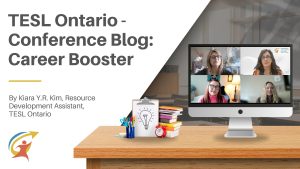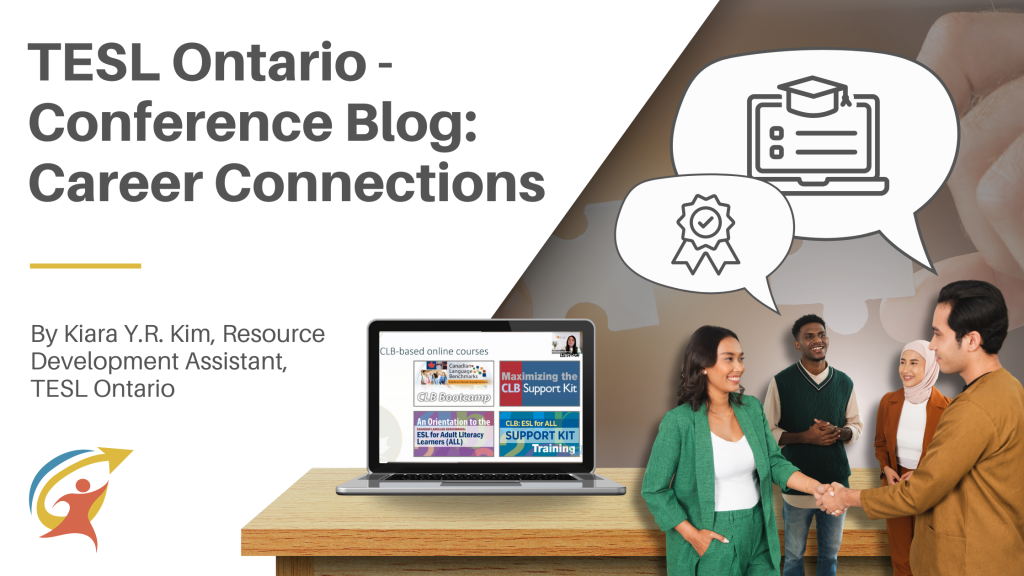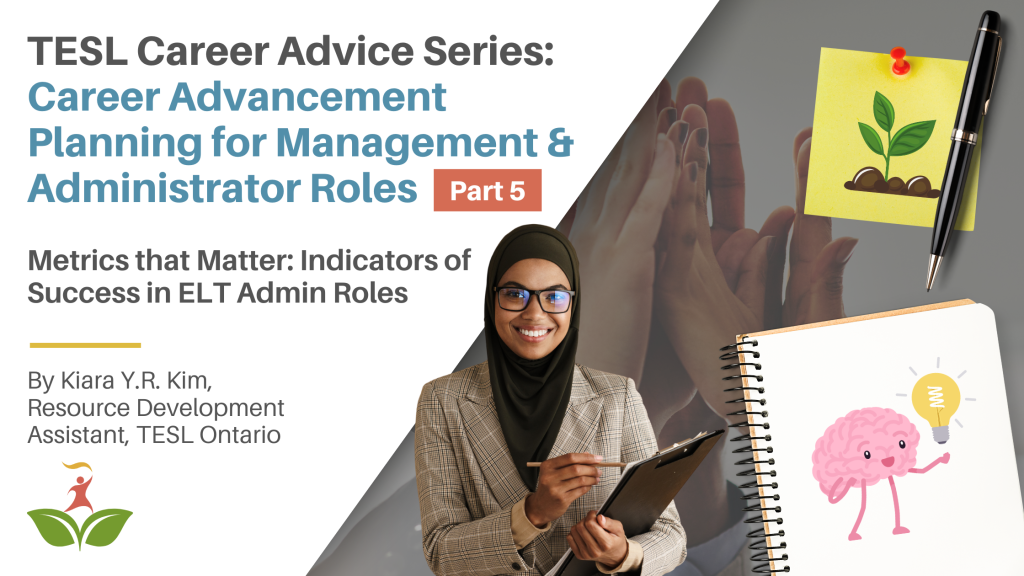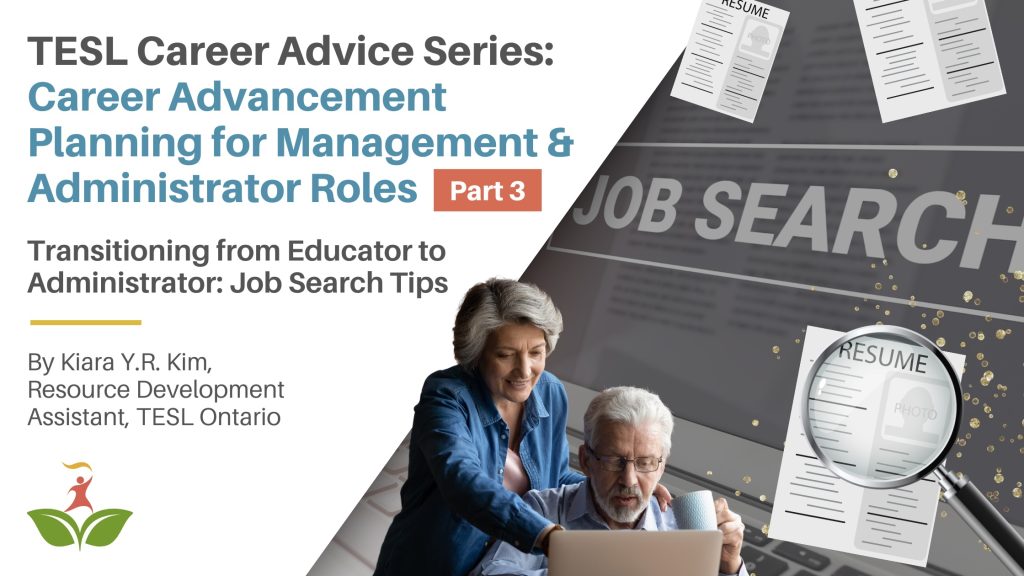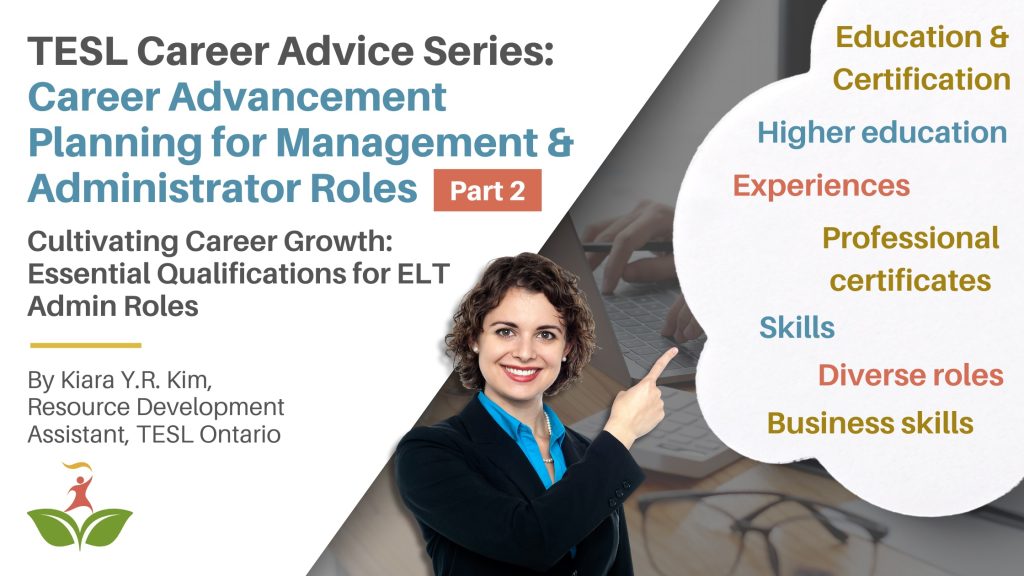 Here are some short and sweet messages from some on our TESL ON Blog Team. We asked the question: What are you hoping to discover and learn about in 2024 with regard to your TESL practice or any other endeavours?
Here are some short and sweet messages from some on our TESL ON Blog Team. We asked the question: What are you hoping to discover and learn about in 2024 with regard to your TESL practice or any other endeavours?
Jennifer Hutchinson: Happy New Year everyone! I hope this year brings you the contentment of routine as well as the excitement of trying new things. My resolution is to lower my screen time, watch TV less, read more, and spruce up my teaching practice with new strategies and tools. Hope I succeed! Here’s to a happy, healthy and engaging 2024 to you all.
Derek Czajkowski: I’m reading a book by Stanford University Professor Jo Boaler called Limitless Mind, which supports the science behind neuroplasticity, the idea that we don’t have fixed brains, and we are capable of learning any subject, at any age. I want to explore this topic in my blogs, as it has definite relevance to our students, who are learning a new language, many of whom are older, and are dealing with learning impediments. I also want to expand my subject range for my blogs. In 2024, I want to learn how to be a better teacher, improve, especially how to be a more effective teacher to lower level students. I would also like to become more adept using online platforms such as Avenue, as well as incorporating AI and ChatGP in my lessons, which I keep at arm’s length, for now, but am becoming somewhat more open to. Last, I want to wish everyone a creative and dynamic year in and out of the classroom, and that despite all the frustrations that come with being an ESL teacher, we are helping our students flourish.
John Allan: In 2024, I am hoping to share projects that I have been contributing to over the past few years. These are New Language Solutions, the team behind Avenue, resources being shared to the Canadian LINC sector. Posts may include discussions about online technology standards, open independent learning resources, new Canadian graded readers and considerations to make online courses more efficient. If there is an opportunity, maybe some commentary on AI and language teaching.
Ozma Siddiqui: As the year turns over another leaf, I would like to start the new year with learning more about how AI can be used for successful learning in the classroom. AI seems to be the way forward and I would love to see how it can be integrated into the English classroom. I wish the TESL fraternity around the world the best of 2024 and hope to continue on this journey of lifelong learning!
Gordon Hatt: I’m currently doing twenty, one-hour classes per week. They are one-on-one and small group coaching classes with native French speakers whose abilities range from level 4 to 7. All of these students have studied English since grade one, and many through the college level. All of them need to be able to function in English at work at least occasionally. Finding authentic texts that stimulate the upper-level learners and learners needing specialized vocabulary is an ongoing challenge: Too easy, and there is no learning. Too difficult, and the students founder. Recently, I have experimented using ChatGPT to convert authentic news articles to the appropriate CLB level. I felt it was very successful and will be using it again in the coming year.
Elyse Borgdorf: Wishing everyone a happy and fruitful 2024. I’ll be taking maternity leave during the year, but hope to use time away from the classroom to understand AI better and look into TESL opportunities that complement my current life stage as a young mom.
Beth Beardall: Best wishes to everyone for a healthful and fulfilling 2024. I hope to continue to hone my skills as a LINC/ESL Instructor. I am especially thinking about how to incorporate a more holistic approach to “doing” PBLA. On a personal note, I want to continue to strengthen my newly discovered practice in Qigong.


